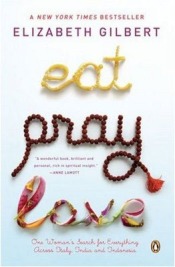Mary Karr: The Memoirist Everyone is Talking About
April 18, 2010
In the past few weeks, I have interviewed authors of memoirs (both self-published and Pulitzer-nominated), a college professor who teaches memoir writing classes, a student at a memoir writing class, a creator of a memoir blog and numerous people who enjoy reading memoir.
I posed similar questions to each of them, but their responses only seemed to match up on one:
“What is your favorite memoir?”
Interview with Marya Hornbacher: Author of the Pulitzer-Nominated Memoir, “Wasted” (Part 2)
April 11, 2010
No more babbling, I’m getting right to the good stuff. Here’s part of my interview with author Marya Hornbacher from this past Wednesday.
How do you define memoir?
Literary truth telling. Memoir is not autobiography. It’s about a specific period or thing in someone’s life. My life is not terribly interesting, but a couple of interesting things have happened to me.
Why did you write “Wasted?”
Interview with Marya Hornbacher: Author of the Pulitzer-Nominated Memoir, “Wasted” (Part 1)
April 11, 2010
Wednesday morning, I sat at my desk telling myself I wasn’t dreaming. I had the phone number of my favorite author, Marya Hornbacher, 36, dialed on my phone. All I needed to do was press “send.”
Almost ten minutes later I was still sitting there, still holding my phone. It was 10:17 am and we had agreed I would call her at 10:15. I panicked that Hornbacher would think I had forgotten her. I pushed “send” before another minute could pass.
I don’t particularly like talking on the phone, especially with people I do not know. I still throw a fit every time my mom asks me to call my grandma to tell her we’re running late. Read the rest of this entry »
Modern Memoir: Are Blogs the New Memoirs?
April 4, 2010
In my very first post, I mentioned that Marya Hornbacher‘s “Wasted: A Memoir of Anorexia and Bulimia” is my favorite memoir and–although I still don’t believe it–she’s agreed to speak with me later this week.
What sets Hornbacher’s memoir apart from others I’ve read is her ability to share painful memories and raw details with her readers without appearing to over sensationalize them. “Wasted” was published in 1998, but even read in the post-James Frey world there is no doubt that Hornbacher is being honest in her writing.
Recently I’ve discovered a new world, a world that reminds me of Hornbacher’s. Mostly women (and a few men) with different psychological disorders and addictions are taking to blogging to aid in their recovery. Known as “recovery blogs,” people use these sites to write daily or every few days about the status of their recovery.
Why Memoirs are Increasing in Popularity
March 26, 2010
Memoirs are not new, but they’ve recently become quite popular.
In Ben Yagoda‘s “Memoir: A History,” Yagoda writes:
“According to Nielsen BookScan, which tracks about 70 percent of U.S. book sales, total sales in the categories of Personal Memoirs, Childhood Memoirs, and Parental Memoirs increased more than 400 percent between 2004 and 2008.”
In an April 15, 2008 article, “Everybody has a story — but is it worth telling?” for CNN, Todd Leopold wrote:
“Memoirs rose in popularity during the ’90s on the backs of such books as Frank McCourt’s “Angela’s Ashes.” Now they’re in such demand that, in 2007, more memoirs were accepted by publishers than debut novels, according to Michael Cader’s Publishers Lunch newsletter, reported USA Today.
Current memoirs in the top 10 of The New York Times’ hardcover list include Julie Andrews’ “Home,” David Sheff’s “Beautiful Boy,” Jose Canseco’s “Vindicated,” Tori Spelling’s “Stori Telling” and Valerie Bertinelli’s “Losing It.” The top two books on the Times’ paperback nonfiction list are also memoirs — Greg Mortenson and David Oliver Relin’s “Three Cups of Tea” and Elizabeth Gilbert’s “Eat, Pray, Love.” Both have been on the Times list for more than a year.”
Since Leopold wrote that article, not much has changed. Almost two years later, “Eat, Pray, Love” is sitting at number 4 on the Paperback Nonfiction Bestseller list. The movie adaptation of the book, starring Julia Roberts and James Franco, is set to be released this summer.
So why now, more than ever, are memoirs so popular?
Welcome to famemoir
March 21, 2010
Main Entry: mem·oir
Pronunciation: \’mem-ˌwär, -ˌwȯr\
Function: noun
Etymology: Middle French memoire, from memoire memory, from Latin memoria
Date: 1571
1 : an official note or report : MEMORANDUM
2 a : a narrative composed from personal experience b: AUTOBIOGRAPHY —usually used in plural c : BIOGRAPHY
3 a : an account of something noteworthy : REPORT b plural : the record of the proceedings of a learned society
– Merriam-Webster.com
Out of Merriam-Webster’s definition of memoir, it is the 2a definition which most closely matches my own thoughts on the genre. I consider a memoir a way for a person to share a private memory with the world. Memoirs are often accounts of “something noteworthy;” however, I am most intrigued by memoirs of seemingly typical people who lead seemingly typical lives.




